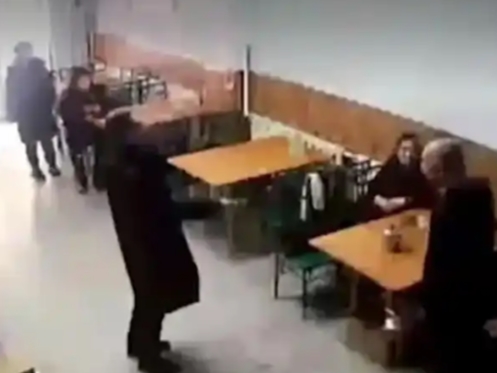Amid the continuous downturn in the Chinese economy and tight local Communist Party finances, both businesses and individuals are frequently facing “fine-oriented law enforcement”. Departments such as transportation and urban management have become the main enforcement bodies, with some local governments increasing their financial revenues through intensive penalties and repetitive inspections, sparking strong social backlash.
In recent years, the saying “as long as there is no money, find a way to fine” has been circulating widely among the Chinese public. In order to alleviate financial pressure, some local governments frequently conduct intensive inspections and penalties on enterprises and individual operators through means such as traffic violations, urban management, and market supervision. Those penalized include small business owners, as well as ordinary citizens and farmers.
According to a report by “China News Weekly” on June 21, a farmer in Jiangsu was fined 100,000 yuan by the market regulatory authority for selling uninspected lamb meat, with a profit of just 180 yuan. A company in Shandong underwent hundreds of administrative inspections each year from 2021 to 2023, severely affecting its production and operation.
Currently, more than 20 provinces such as Beijing, Shanghai, Jiangsu, Zhejiang, Hubei, Hunan, and Fujian have successively issued policy documents to rectify “law enforcement involving enterprises” and launched special rectification campaigns.
A resident of Changshu, Jiangsu, named He Li, told a reporter from The Epoch Times that her daughter’s clothing factory was fined 300,000 yuan for alleged intellectual property infringement on clothing items purchased for 150,000 yuan. She said that officials claimed the items did not have registered trademarks and threatened criminal punishment. She added, “Now they are really going crazy, imposing fines left and right.”
She also mentioned that authorities not only impose fines but also require companies to purchase designated equipment. Liu Heyang, who runs a restaurant in Taixing, Jiangsu, had a similar experience. He said, “Originally, a gas cylinder cost 80 yuan, but now we have to change to the new government-designated cylinder for 140 yuan each. If we don’t buy, they won’t replace the gas.” He mentioned that even residents’ household gas meters were demanded to be changed to “officially designated” ones, with supply cut off if not replaced.
In addition to fines imposed on businesses and shops, many places have extended law enforcement targets to community residents. Sun Hao, a resident of a community in Zhengzhou, noted that the number of urban management officials and traffic police patroling has noticeably increased recently, specifically targeting improperly parked bicycles. “If caught, they fine between 50 to 100 yuan, with some being fined twice in a day.”
He also mentioned that traffic police frequently set up traps at intersections, issuing tickets and penalty points on the spot for parking violations. He heard that there is even a commission system internally for traffic police.
Multiple videos and comments on social media platforms have pointed out inconsistent standards and arbitrary law enforcement by local law enforcement departments. In a county in Zhejiang, traders and street vendors have been repeatedly fined for environmental cleanup efforts. A comment on Douyin stated, “The amount of the fine depends on their mood.” Some users mentioned, “One store was fined three thousand today, while the neighboring one just received a verbal warning.”
The phenomenon of local governments increasing financial resources through fines has raised public concern. According to data from the Chinese Ministry of Finance, the national non-tax revenue reached 4.473 trillion yuan in 2024, an increase of 25.4% from the previous year. Hebei saw a 110% year-on-year increase, Hubei 102%, and Shaanxi 100%. While some provinces like Qinghai and Jilin had a decrease in fines and confiscations, the decline was limited. It is worth noting that some provinces did not publicly disclose their annual fines and confiscation income.
As of June, more than 25 provincial administrative regions across the country have issued special rectification plans, with over sixty percent establishing a “joint inspection mechanism”. Fujian, Guangdong, Zhejiang, and other places have even developed online complaint platforms to facilitate reporting of repetitive law enforcement and excessive interference by businesses.
Mr. Zhou, a rights activist in Wuhan, believes that local governments implementing central policies often have countermeasures in place. He emphasized, “Most crucially, a certain percentage of the fines and confiscations turned over by local law enforcement departments are often returned to the local finances. The more they fine, the more they get back, which motivates them to continue doing so.”
Mr. Zhou pointed out that against the backdrop of ongoing financial pressures at the local level, “excessive fines” not only burden businesses and the public but could also damage the government’s credibility.

